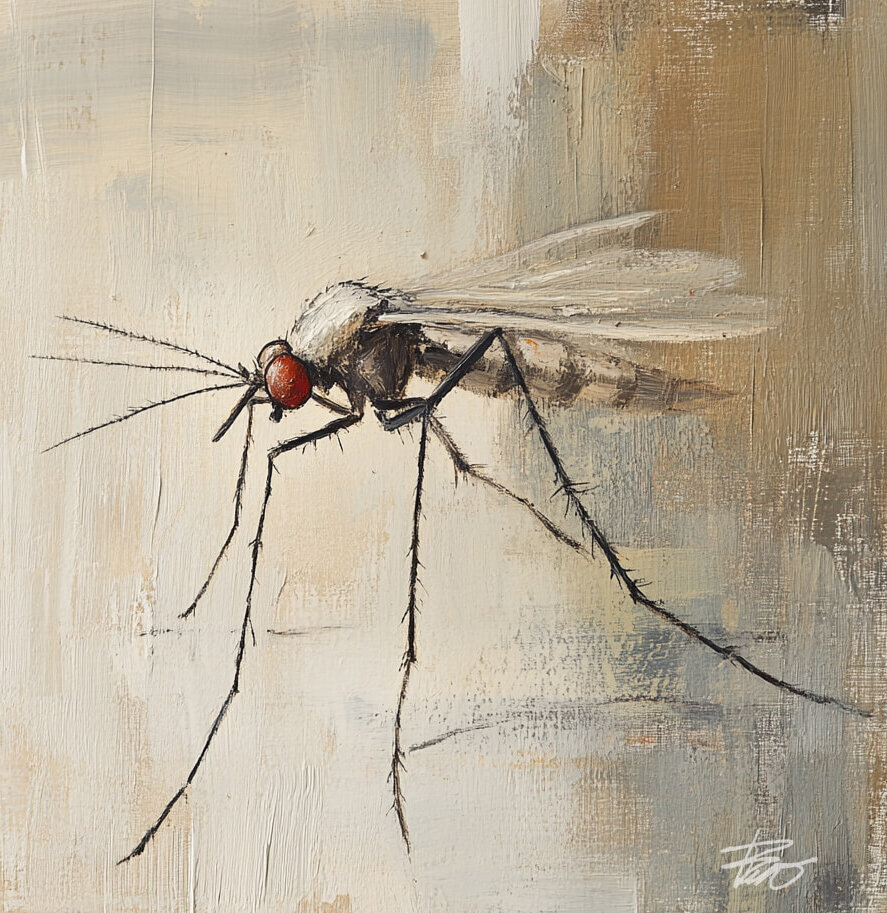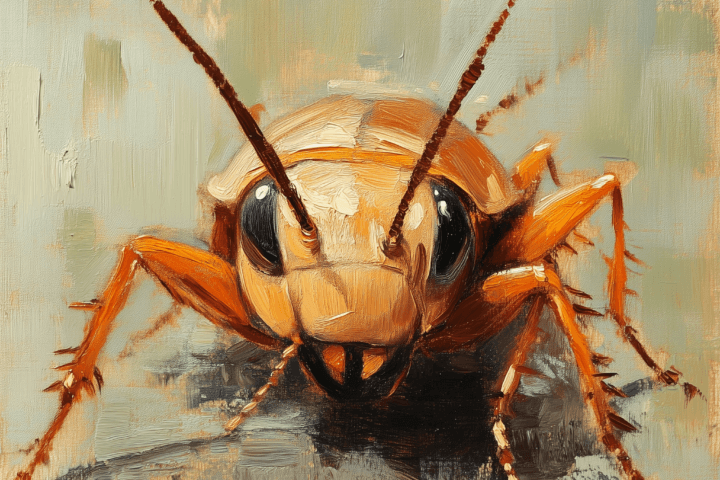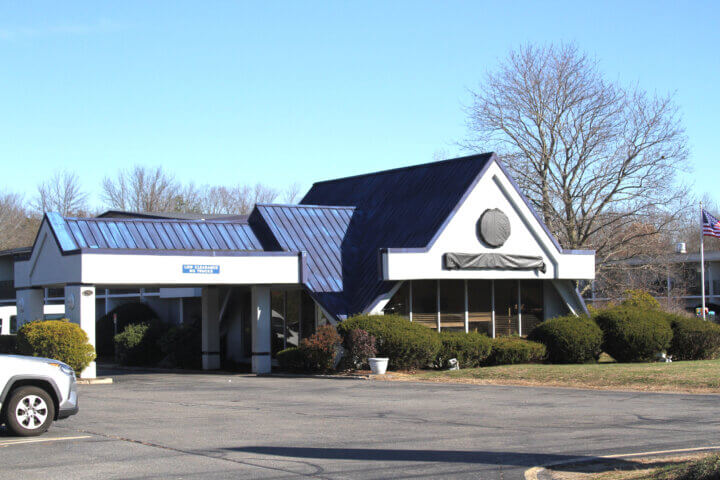By Celeste Katz Marston — Celeste@concordbridge.org
The town Board of Health voted at an emergency Saturday night meeting to authorize the spraying of school property perimeters with pesticide amid an elevated risk of eastern equine encephalitis.
The Board also unanimously agreed to “strongly recommend” — but not formally mandate — restricting outdoor activities between dusk and dawn to lower the odds of exposure to the rare but serious mosquito-borne virus.
Health Director Melanie Dineen specified to The Concord Bridge that treatment would take place at the following locations:
- Willard Elementary, 185 Powder Mill Road.
- Peabody Middle School, 1231 Old Marlboro Road.
- Sanborn Middle School, 835 Old Marlboro Road.
- Thoreau Elementary, 29 Prairie Street.
- Alcott Elementary, 93 Laurel Street.
- Concord-Carlisle High School, 500 Walden Street.
- Ripley Administration Building, 120 Meriam Road.
Dineen said spraying would occur after dusk starting Monday and continuing Tuesday to Thursday until complete, but not if playing fields are in use or if it rains. The areas will also be posted with notification of the pesticide treatment for 72 hours, she said.
The Board of Health convened for the emergency weekend session after sampling of mosquitoes in Concord on September 5 and 10 confirmed the presence of the virus, spurring insecticide spraying around Emerson and Rideout.
State health authorities have raised Concord’s EEE risk level from moderate to high, bringing it in line with the neighboring communities of Acton and Carlisle.
Reading from Massachusetts Department of Public Health advisories, Concord BOH Chair Dr. Randy Kring noted that EEE is “a serious disease which occurs sporadically in Massachusetts with 30 to 50 percent mortality [and] lifelong neurologic disability among many survivors.”
Kring went on to say that there is no specific treatment for the virus and that “in Massachusetts, approximately half of the people identified with EEE have died from the infection.”
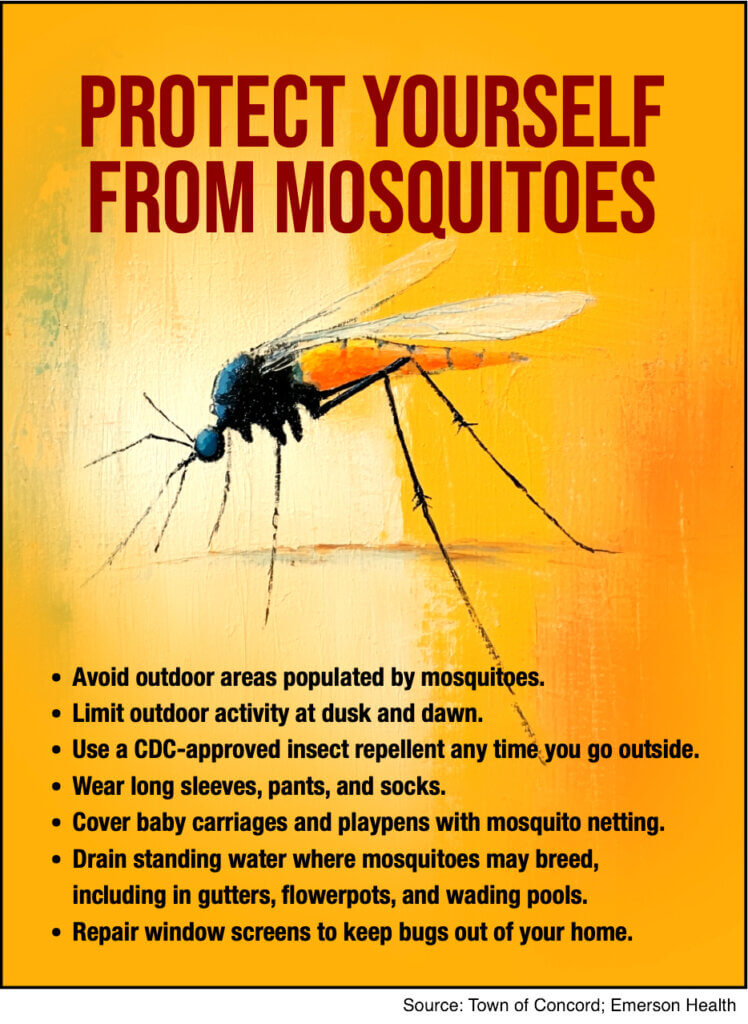
No street spraying for now
Dineen had to seek the go-ahead to spray because of the Children’s Protection Act, which regulates mosquito control around Massachusetts schools. Public and private schools fall under the same regulations, she said.
“They’re going to spray the perimeter of the fields, in the vegetation,” Dineen said. “So not on where kids actually play, but around the perimeters where the vegetation is higher, [to] deter any mosquitoes from entering.”
As far as more targeted insecticide treatment, “Our mosquito control district superintendent did not recommend that we move with the street-by-street truck spraying,” Dineen said.
“Unless we get another case in the area or some other high-risk change, I’m not going to suggest that we spray with trucks around the streets at this time.”
The board voted in favor of the school perimeter spraying in hopes that colder weather would eventually do its usual work of ending mosquito season.
“I’m not sure when the first frost usually is. I would say probably late September, early October,” BOH member Jim Whalen said. “If the current weather pattern holds, you might be looking for at least another couple of weeks of, or probably very mosquito-friendly weather.”
Risk and response
In recommending, but not formally ordering, that Concordians limit evening outdoor activities, the town is setting a policy similar to that adopted by Acton. There, Dineen said, “The schools changed their schedule on their own, and the private community was advised against it. They did not require anybody to do that.”
As far as community response, Dineen said, “I have received feedback from both sides. I would say I’ve received requests for people for me to get on and spray more, and I receive feedback from folks who say, ‘Please don’t spray at all.’”
At the Saturday meeting, several residents participating in the Zoom encouraged health authorities to move ahead with pesticide treatment; none spoke against it.
Dennis Morgan, who identified himself as a youth sports organizer, did encourage the board not to put the kibosh on all outdoor evening activity.
“These are kids who lost a year over Covid, and it’s important that they’re able to continue in their sports,” he said.
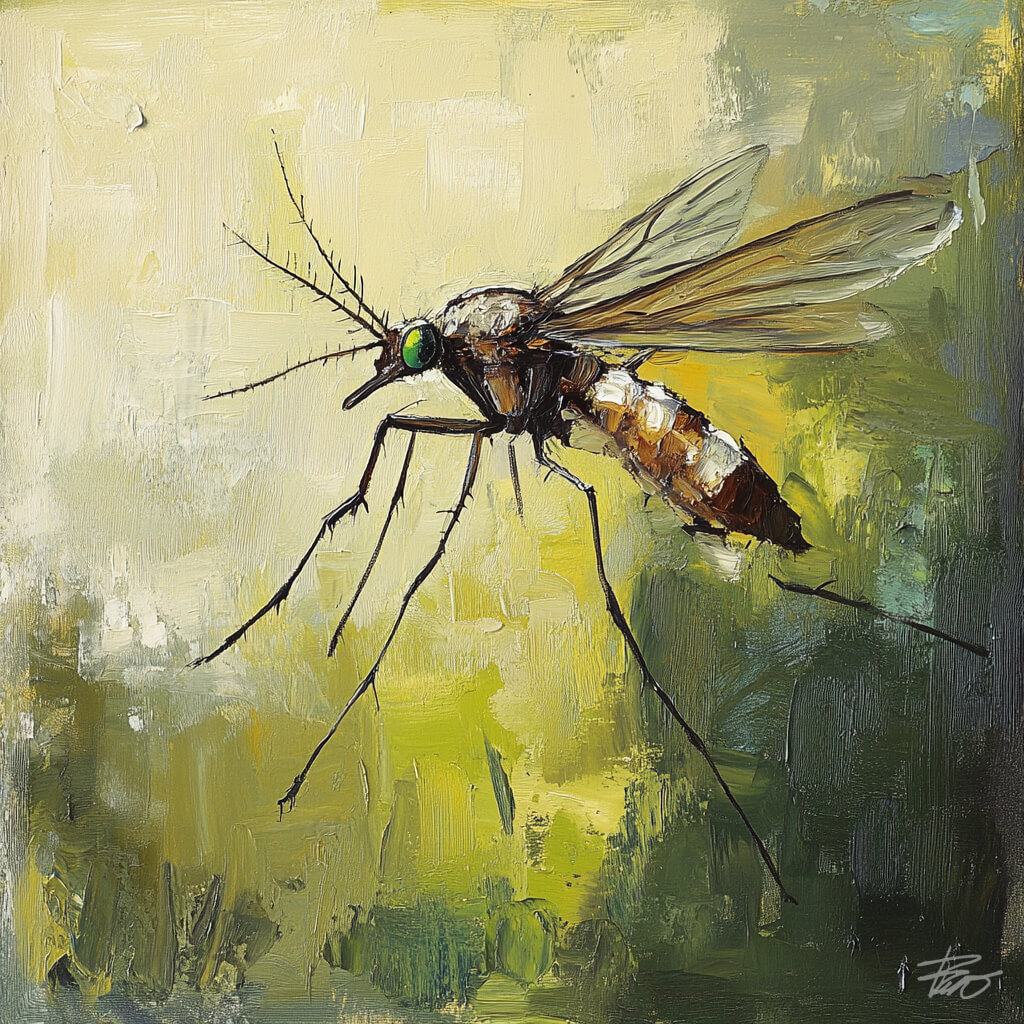
EEE has infected at least four people in Massachusetts in recent weeks, including in Middlesex County.
Mild symptoms can include fever, headache, vomiting, and diarrhea, but severe symptoms may include confusion, drowsiness, paralysis, seizures, and coma. Those younger than age 15 and older than 50 are at the highest risk for serious illness from infection.
Day and night biting
The town has reported it is using the pesticide Suspend Polyzone. The active ingredient is deltamethrin, a type of pyrethroid found in pet flea and tick shampoos and collars, as well as in lice and scabies treatments for humans.
Entomologist Tony Kiszewski, Concord’s mosquito control district representative, said two species revealed in sampling were Aedes vexans, which was located near Hanscom and is active in daylight, and Culex salinarius, which goes after both birds and mammals at night.
“One thing I like to mention also is that every day, because it’s been so dry and it’s going to stay pretty dry, the problem is getting smaller that every passing day, and it’ll be a drastic reduction [when] we have our first hard freeze,” Kiszewski said.
“So we’re losing about 5 to 10 percent of the mosquito population every day just from natural mortality. So it is getting smaller, the issue, but there’s still risk, obviously.”
The state on Friday also announced this year’s eleventh human case of West Nile virus in Massachusetts.


